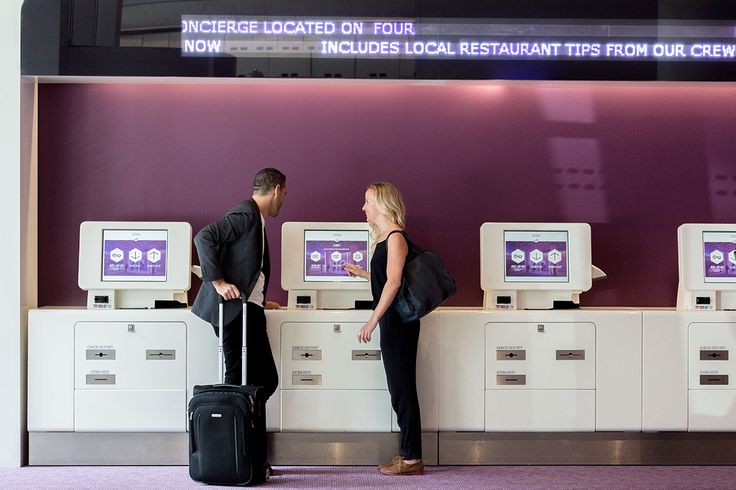Mistakes at hotel reception desks—such as misspelled guest names, incorrect room assignments, or billing errors—can quickly spoil the guest experience and damage a hotel’s reputation. Traditional front-desk operations, dependent on human accuracy under pressure, often struggle to maintain consistency, especially during peak hours. Self-service kiosks have emerged as a powerful solution to these challenges, significantly reducing human errors and consistently keeping guests satisfied.
The Challenge of Human Error
Hotel receptionists face daily pressures: managing multiple check-ins simultaneously, handling guest inquiries, and ensuring smooth operations during peak hours. Under such conditions, even the most experienced front-desk staff can make mistakes. Errors like assigning the wrong room, miscalculating a payment, or incorrectly entering guest information can lead to dissatisfaction and negative reviews.
Julia Morrison, General Manager at Amsterdam’s Grand View Hotel, confirms this challenge:
“No matter how well-trained our team is, human errors inevitably occur, especially during busy periods. These small mistakes can escalate quickly and negatively impact guest satisfaction.”
Automation and Accuracy
Self-service kiosks, integrated directly with hotel Property Management Systems (PMS), payment gateways, and room key encoders, substantially reduce human error. By automatically capturing guest data from scanned documents (such as passports or IDs), kiosks eliminate manual data entry mistakes.
Mark Evans, Technology Director at Sezam24, a leading provider of hotel check-in kiosks, explains:
“Our kiosks integrate seamlessly with PMS systems like Cloudbeds, MEWS, or Protel. When guests scan their IDs, the kiosk automatically fills in registration forms accurately. This eliminates common human errors and ensures guest data consistency.”
Consistency: A Key to Guest Satisfaction
Consistency is crucial in hospitality. Guests expect the same high-quality experience every time they check in. However, human performance varies due to factors such as fatigue, training level, or even mood. Self-service kiosks provide a consistent guest experience every single time, without exceptions.
Sarah Klein, Operations Manager at Hotel Moderne in Berlin, emphasizes this benefit:
“With our previous manual check-in system, guests sometimes experienced inconsistent service depending on who was at the front desk. Now, our Sezam24 kiosks deliver the same reliable and intuitive experience every time, significantly reducing guest complaints.”
Empowering Guests Through Self-Service
Today’s travelers value autonomy and control. They appreciate being able to manage their check-in independently, select room upgrades, encode room keys, and handle payments without relying on staff assistance. Self-service kiosks empower guests, reducing frustration and enhancing their overall hotel experience.
Alessandro Rossi, owner of Boutique Hotel Firenze, shares his positive experience:
“Guests now have complete control over their check-in process. They can verify reservation details, choose available upgrades, and finalize check-in at their own pace. This empowerment leads to happier guests and fewer complaints.”
Speed and Operational Efficiency
Reception areas often become bottlenecks during peak check-in times. Guests dislike waiting, and delays at the front desk can negatively impact their first impression of the hotel. Unlike human receptionists, kiosks can handle multiple tasks simultaneously, operate continuously without breaks, and maintain efficiency even during busy hours.
Emma Johansson, Front Office Supervisor at Stockholm Suites, highlights the efficiency improvements they’ve experienced:
“During busy periods, our reception area used to become a bottleneck,” recalls Johansson. “Now, with Sezam24 kiosks, guests rarely wait more than a minute or two to complete their check-in. The kiosks have dramatically improved our guest flow and reduced wait times.”
Reducing Costs and Enhancing Staff Productivity
Automated kiosks not only improve guest satisfaction but also significantly reduce operational costs. By automating repetitive tasks, hotels can allocate their human resources more effectively, allowing staff to focus on personalized guest interactions, special requests, and other high-value activities.
Morrison from Grand View Hotel adds:
“Since implementing self-service kiosks, we’ve seen a noticeable reduction in operational expenses. More importantly, our front-desk team can now spend their valuable time enhancing guest experiences rather than handling mundane check-in procedures.”
The Future: A Balance Between Technology and Human Touch
While self-service kiosks offer clear advantages in accuracy, consistency, and efficiency, hospitality remains fundamentally about human connections. The future for hoteliers lies in striking the right balance between automation and personal interaction.
Evans from Sezam24 concludes:
“Self-service kiosks are not intended to replace human interaction entirely. Rather, they complement hotel staff by handling routine tasks flawlessly, allowing hotel employees to focus on meaningful interactions with guests. This balance is the key to future success in hospitality.”
As hotels continue to embrace technology-driven solutions, self-service kiosks stand out as an essential tool for improving accuracy, enhancing guest satisfaction, and streamlining operations. The hotels already using these kiosks consistently report fewer mistakes, happier guests, and optimized operations—clearly demonstrating that, when it comes to avoiding errors and disappointing guests less, technology has a decisive advantage.



